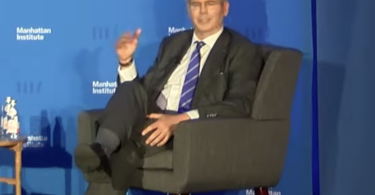As of 2024, conversion therapy, sometimes referred to as “reparative therapy,” the harmful and discredited practice aimed at changing an individual’s sexual orientation or gender identity, is still legal in 19 states.
In fact, while doing research for my book, Raising LGBTQ Allies, I came across Dr. Joseph Nicolosi’s book, A Parent’s Guide to Preventing Homosexuality.
Dr. Nicolosi, considered to be the “father of conversion therapy,” was an American clinical psychologist who advocated and practiced reparative therapy for decades in Los Angeles. His book, first published in 2002, was re-released as a revised edition on March 10, 2017, a few days after his death on March 8, 2017.
Fortunately, in 2019, Amazon removed the controversial book from its site, but his other books are still available, though, through Barnes and Noble, Amazon, and other online bookstores. After finding the book, I began to think about the parents I meet all the time with a child who recently came out—parents who, out of fear, worry, or concern, might Google information and accidentally come across Dr. Nicolosi’s books or therapists who practice conversion therapy.
According to studies by the UCLA Williams Institute, around 80,000 LGBTQ youth will experience conversion therapy in the coming years, often through the persuasion of well-intentioned, but misinformed parents or caretakers. A report from the Williams Institute published in June 2019 states: “An estimated 16,000 LGBT youth (ages 13–17) will receive conversion therapy from a licensed health care professional before they reach the age of 18. Also, approximately 57,000 youth will undergo the treatment from a religious or spiritual advisor.”
The good news is there are individuals, groups, and organizations working tirelessly to introduce legislation so that all 50 states will have laws banning conversion therapy. What’s still concerning, however, is that the laws don’t restrict the practice among religious providers, many of whom are part of churches and religious groups in our communities.
The generational and cultural shifts we need to make, and why this is still an important matter to address, are that there is nothing wrong, bad, or diagnosable about LGBTQ youth. The APA released an official statement in 2013 stating, “No credible evidence exists that any mental health intervention can reliably and safely change sexual orientation; nor, from a mental health perspective does sexual orientation need to be changed.”
I’ve worked with many clients who have at one time undergone conversion therapy at the persuasion of their parents. All of whom suffered depression and severe anxiety as a result of the harmful treatment. One of my clients eventually had to quit his job because his anxiety was so bad. He became extremely introverted and couldn’t be around a lot of people. A report from the American College of Physicians states: “The practice causes more harm, especially to LGBTQ youth and adolescents, including the loss of sexual feeling, depression, anxiety, and suicidality.”
What’s so devastating about this kind of treatment toward LGBTQ youth is that it continues to happen today in many subtle and seemingly benign ways, even though it’s not seen as “conversion therapy.”
Parents seek conversion therapy for LGBTQ youth because of their misguided beliefs, or fear, about what it means to be LGBTQ. An LGBTQ adult seeks conversion therapy, or can practice it on themselves by policing their behavior, because they haven’t addressed their own internalized shame about being LGBTQ. Which is a result of not being raised in an LGBTQ-affirming home, learning in an LGBTQ-affirming classroom, or playing on an LGBTQ-affirming playground.
Toward the end of 2019, McKrae Game, who founded one of the largest conversion therapy programs in the United States, came out publicly as gay. After coming out and speaking about the dangers of conversion therapy, he said, “So much of it is trying to change people and fix people. It’s a lie and we have harmed generations of people. We’ve done wrong, we need to admit our wrongs, and do what we can do to stop the wrong from continuing to happen.” While Game’s acknowledgment isn’t a surprise to most allies and members of the LGBTQ community, there are still communities that believe in conversion therapy and are fighting to keep it alive.
In January 2019, a lawsuit was filed in Brooklyn, New York, challenging the state’s 2017 conversion therapy ban on the basis of free speech and religious freedom. As a result, LGBTQ advocates made a strategic move and asked the New York City Council to repeal its ban. They feared that if the case appeared before the Supreme Court, it could open the door for more lawsuits across the country.
Brad Hoylman, the state’s only openly gay senator told the New York Times, “The legal climate is less favorable at the federal level for the LGBTQ community. We crafted the law specifically to pass a legal challenge because we knew this was an area that anti-LGBT legal forces were exploring.” Although the law remains in effect for minors, similar bans are being challenged in other states across the country.
It’s essential that we understand our past in order to create a future in which all children are affirmed and accepted. As in an analogy of cleaning our room, if we don’t look under the bed and clean out the deeper layers of dust, we will still technically have a dirty bedroom. The same goes for our consciousness. Until we uncover and name our misguided beliefs about LGBTQ people from not only an individual level, but from a societal one as well, kids today will still be at risk of getting bullied and experiencing queerphobia, the explicit or implicit hostile beliefs about LGBTQ people.
This upcoming generation is set to be the first non-white-majority generation. It doesn’t mean, though, that we stop talking about racism and xenophobia. When it comes to cultural shifts and new paradigms, we have to take proactive action by helping plant new seeds in the consciousness of new generations.







